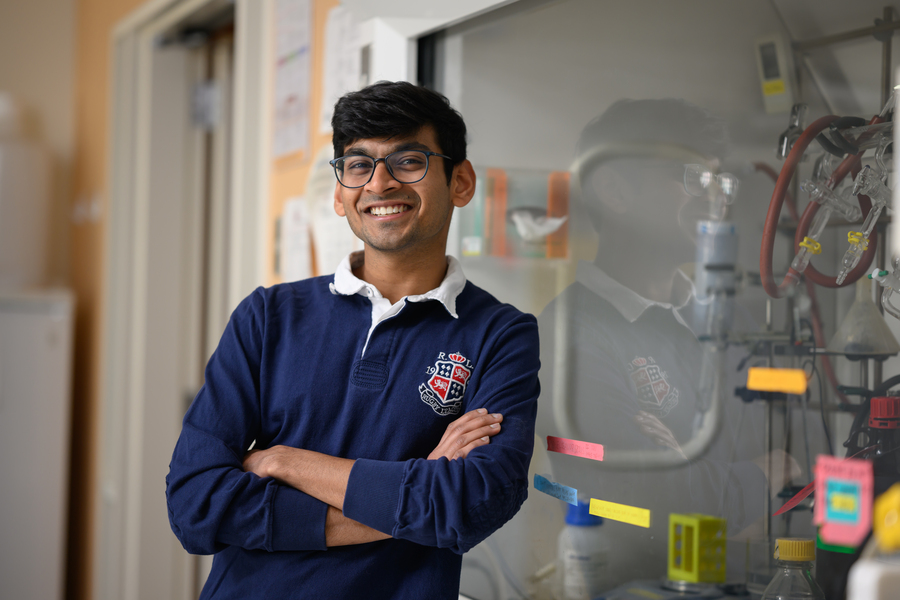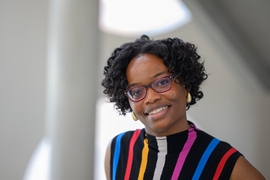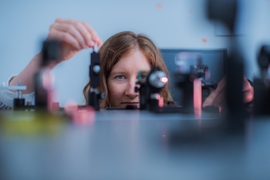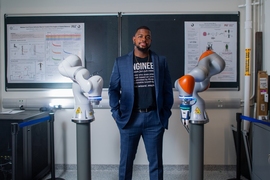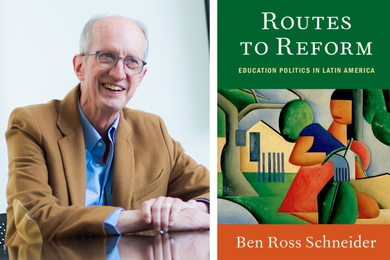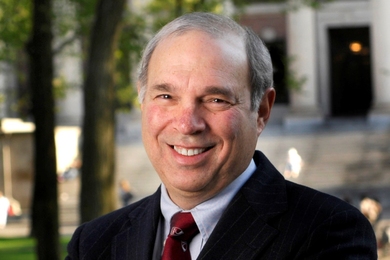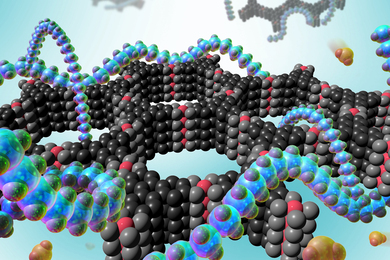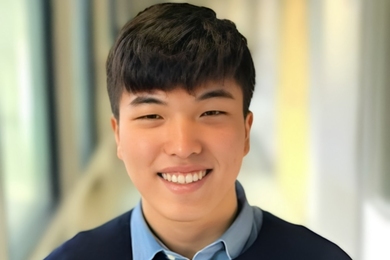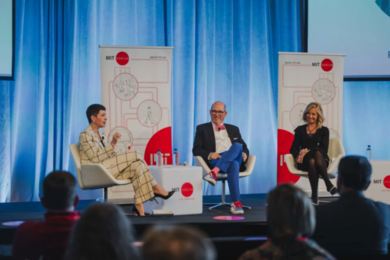Ashutosh Kumar is a classically trained materials engineer. Having grown up with a passion for making things, he has explored steel design and studied stress fractures in alloys.
Throughout Kumar’s education, however, he was also drawn to biology and medicine. When he was accepted into an undergraduate metallurgical engineering and materials science program at Indian Institute of Technology (IIT) Bombay, the native of Jamshedpur was very excited — and “a little dissatisfied, since I couldn’t do biology anymore.”
Now a PhD candidate and a MathWorks Fellow in MIT’s Department of Materials Science and Engineering, and a researcher for the Koch Institute, Kumar can merge his wide-ranging interests. He studies the effect of certain bacteria that have been observed encouraging the spread of ovarian cancer and possibly reducing the effectiveness of chemotherapy and immunotherapy.
“Some microbes have an affinity toward infecting ovarian cancer cells, which can lead to changes in the cellular structure and reprogramming cells to survive in stressful conditions,” Kumar says. “This means that cells can migrate to different sites and may have a mechanism to develop chemoresistance. This opens an avenue to develop therapies to see if we can start to undo some of these changes.”
Kumar’s research combines microbiology, bioengineering, artificial intelligence, big data, and materials science. Using microbiome sequencing and AI, he aims to define microbiome changes that may correlate with poor patient outcomes. Ultimately, his goal is to engineer bacteriophage viruses to reprogram bacteria to work therapeutically.
Kumar started inching toward work in the health sciences just months into earning his bachelor's degree at IIT Bombay.
“I realized engineering is so flexible that its applications extend to any field,” he says, adding that he started working with biomaterials “to respect both my degree program and my interests."
“I loved it so much that I decided to go to graduate school,” he adds.
Starting his PhD program at MIT, he says, “was a fantastic opportunity to switch gears and work on more interdisciplinary or ‘MIT-type’ work.”
Kumar says he and Angela Belcher, the James Mason Crafts Professor of biological engineering, materials science and of the Koch Institute of Integrative Cancer Research, began discussing the impact of the microbiome on ovarian cancer when he first arrived at MIT.
“I shared my enthusiasm about human health and biology, and we started brainstorming,” he says. “We realized that there’s an unmet need to understand a lot of gynecological cancers. Ovarian cancer is an aggressive cancer, which is usually diagnosed when it’s too late and has already spread.”
In 2022, Kumar was awarded a MathWorks Fellowship. The fellowships are awarded to School of Engineering graduate students, preferably those who use MATLAB or Simulink — which were developed by the mathematical computer software company MathWorks — in their research. The philanthropic support fueled Kumar’s full transition into health science research.
“The work we are doing now was initially not funded by traditional sources, and the MathWorks Fellowship gave us the flexibility to pursue this field,” Kumar says. “It provided me with opportunities to learn new skills and ask questions about this topic. MathWorks gave me a chance to explore my interests and helped me navigate from being a steel engineer to a cancer scientist.”
Kumar’s work on the relationship between bacteria and ovarian cancer started with studying which bacteria are incorporated into tumors in mouse models.
“We started looking closely at changes in cell structure and how those changes impact cancer progression,” he says, adding that MATLAB image processing helps him and his collaborators track tumor metastasis.
The research team also uses RNA sequencing and MATLAB algorithms to construct a taxonomy of the bacteria.
“Once we have identified the microbiome composition,” Kumar says, “we want to see how the microbiome changes as cancer progresses and identify changes in, let’s say, patients who develop chemoresistance.”
He says recent findings that ovarian cancer may originate in the fallopian tubes are promising because detecting cancer-related biomarkers or lesions before cancer spreads to the ovaries could lead to better prognoses.
As he pursues his research, Kumar says he is extremely thankful to Belcher “for believing in me to work on this project.
“She trusted me and my passion for making an impact on human health — even though I come from a materials engineering background — and supported me throughout. It was her passion to take on new challenges that made it possible for me to work on this idea. She has been an amazing mentor and motivated me to continue moving forward.”
For her part, Belcher is equally enthralled.
“It has been amazing to work with Ashutosh on this ovarian cancer microbiome project," she says. "He has been so passionate and dedicated to looking for less-conventional approaches to solve this debilitating disease. His innovations around looking for very early changes in the microenvironment of this disease could be critical in interception and prevention of ovarian cancer. We started this project with very little preliminary data, so his MathWorks fellowship was critical in the initiation of the project.”
Kumar, who has been very active in student government and community-building activities, believes it is very important for students to feel included and at home at their institutions so they can develop in ways outside of academics. He says that his own involvement helps him take time off from work.
“Science can never stop, and there will always be something to do,” he says, explaining that he deliberately schedules time off and that social engagement helps him to experience downtime. “Engaging with community members through events on campus or at the dorm helps set a mental boundary with work.”
Regarding his unusual route through materials science to cancer research, Kumar regards it as something that occurred organically.
“I have observed that life is very dynamic,” he says. “What we think we might do versus what we end up doing is never consistent. Five years back, I had no idea I would be at MIT working with such excellent scientific mentors around me.”
